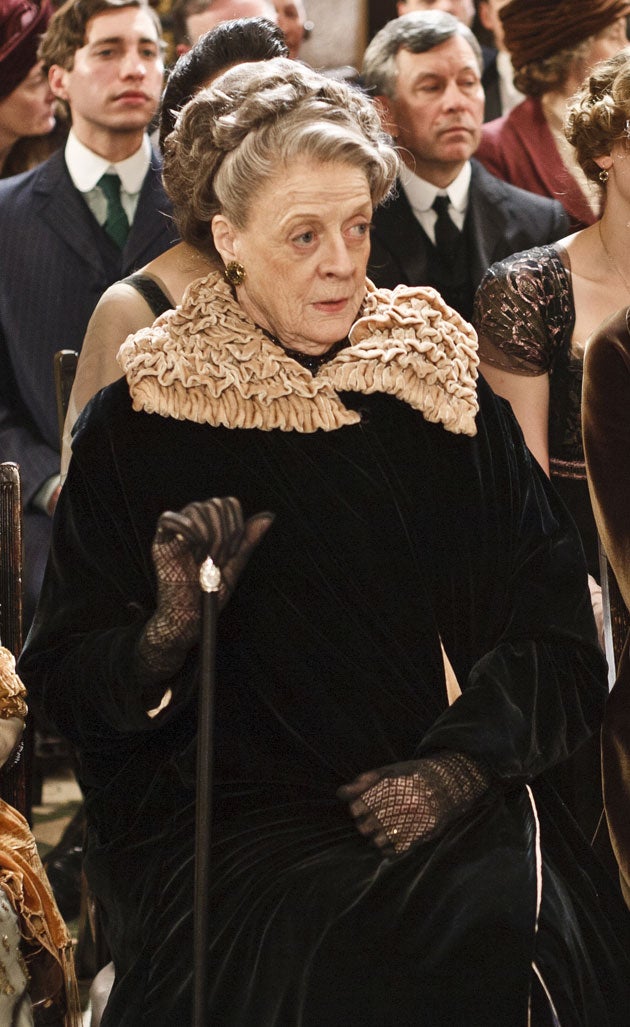We need to see Maggie Smith and Michael Gambon on stage again
But it needs imaginative directors to get them there


Your support helps us to tell the story
From reproductive rights to climate change to Big Tech, The Independent is on the ground when the story is developing. Whether it's investigating the financials of Elon Musk's pro-Trump PAC or producing our latest documentary, 'The A Word', which shines a light on the American women fighting for reproductive rights, we know how important it is to parse out the facts from the messaging.
At such a critical moment in US history, we need reporters on the ground. Your donation allows us to keep sending journalists to speak to both sides of the story.
The Independent is trusted by Americans across the entire political spectrum. And unlike many other quality news outlets, we choose not to lock Americans out of our reporting and analysis with paywalls. We believe quality journalism should be available to everyone, paid for by those who can afford it.
Your support makes all the difference.To the chagrin of those of us who have seen her brilliant stage performances, Dame Maggie Smith will probably be most remembered as the acerbic Dowager Countess in TV’s Downton Abbey. Perhaps it is to her chagrin, too, as she said in an interview this week how much she missed the stage. She couldn’t, though, face long runs and matinees twice a week. Besides, there simply weren’t the parts for a woman of her age. No one was writing interesting roles for octogenarians, she said.
This comes shortly after the revelation that another great stage actor, Sir Michael Gambon, cannot return to the theatre as he now has too much difficulty remembering his lines.
But is it really inevitable that we have seen the last of two such consummate stage actors? I don’t think it need be inevitable at all. What it needs is some imaginative thinking from our theatres and their artistic directors. Runs do not have to be long. Matinees are not essential. Equally one could have a matinee, and no evening performance that day. One could, in short, quite easily find a way of getting Maggie Smith back on stage, if artistic directors used a little imagination and departed from the normal pattern.
The National Theatre’s new artistic director, Rufus Norris, has announced his first season. What a bigger splash he could have made if he had announced that he was bringing one of Britain’s best loved actresses back to the stage and had devised a short season to suit her – and consequently delight audiences. Some of our great regional theatres, too, could devise such seasons. Playwrights, also, should be doing more to write roles for older women, especially in an era notable for new writing, much of it by women.
In the case of Sir Michael Gambon, he did appear on stage a couple of years back in a Samuel Beckett radio play, All That Fall, that had been adapted for the theatre, and in which the performers held scripts on the West End and Broadway stages. He and his co-star Dame Eileen Atkins were electrifying. Is it beyond the bounds of possibility that a role could again be found in which Sir Michael could hold a script? An epistolary play, perhaps. Audiences would not mind a bit.
We are giving up on our great, older performers too easily. And the reason is that those who run theatres, especially our most celebrated and well-funded theatres, have not shown sufficient will, or sufficient imagination, to entice the country’s greatest and most revered actors away from TV and film and back to the art form that they genuinely love most.
How do these galleries know where we come from?
The dramatic fall in domestic visitors as opposed to tourists at the National Gallery and Tate prompted me last week to question whether there should still be free admission for all at those institutions. A number of readers emailed me to agree, citing some countries where tourists are charged at major museums, with domestic visitors having free access. But several of you raised a rather different point. You wondered how these figures are arrived at, as you had never been asked on your visits which country you were from. And I must admit, now I think of it, that I too on my many visits to the Tate and National Gallery have never once been asked where I come from. So just where and when are these figures collected? A Tate spokeswoman tells me that the research is carried out regularly, and a sample of visitors is questioned each time. Perhaps I and those who emailed me just don’t look very approachable.
Alastair Campbell has a winning take on history
In his highly entertaining session at The Independent Bath Literature Festival, Alastair Campbell talked about his fascinating new bookWinners and at one point lamented that politicians couldn’t be more authentic and say what they really thought. I agree, and think back to the days of the New Labour government, when every Labour MP would receive the same text message on the topic of the moment, instructing them the exact words to say in any public statements. Not much room for individuality, and saying what one really thought, there. This was all overseen by Tony Blair’s communications guru, Alastair Campbell. I think one of the secrets of being a winner is a short memory.
d.lister@independent.co.uk
twitter.com/davidlister1
Join our commenting forum
Join thought-provoking conversations, follow other Independent readers and see their replies
Comments